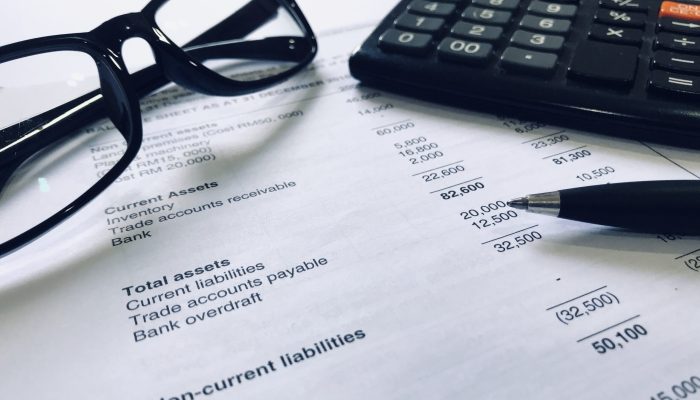What is a small business loan?
A small business loan is a source of capital that entrepreneurs can use to pay for operating and expansion expenses. Small business owners can obtain small business loans from standard banks and credit unions, as well as internet lenders, such as those supported by the U.S. Small Business Administration (SBA). Depending on the loan type, you can utilize the money for anything from small acquisitions as working capital and equipment, to bigger acquisitions like real estate.
What is the difference between a small business loan and a small business grant?
The main distinction between a grant and a loan is that a grant does not require repayment whereas a loan does.
A business loan is an amount of money that a lending organization, such as a bank, credit union, or online lender provides to a small business temporarily; with the understanding that it will be repaid over time along with interest. The normal loan payment period can range from a few months, to five or ten years. A business loan can be used to cover costs such as establishing or growing a business, paying employee salaries, supporting marketing initiatives, buying new machinery or cars, or leasing office space.
A business grant is a sum of free money that an organization or a local, state, or federal government provides to a small business to be used for very particular purposes.
Grants for businesses are difficult to secure, and often come with requirements that must be met. Grants are available through the Small Business Innovation Research (SBIR) and Small Business Technology Transfer (STTR) programs. Small businesses are encouraged to engage in government research and development, particularly with regard to technological innovation and scientific research. The SBIR and STTR grant programs are quite competitive and businesses need to have a good track-record to succeed.

How do small business loans work?
Your personal credit score will be considered by lenders that provide small business loans in order to decide whether or not to lend you money. Your personal credit demonstrates your capacity to pay back personal obligations like credit card balances, home loans, and auto loans. The higher it is, the less risky you appear to a lender, and the more probable it is that your loan application will be accepted.
What then qualifies as a good credit score? A score of 800 or above is regarded as exceptional, while a score of 700 or higher is regarded as good. Visit AnnualCreditReport.com to get free copies of your Experian, TransUnion, and Equifax credit reports and determine your credit score. The team at Fiscus Capital Finance can also help you work out your credit score and help you see if you need to rehabilitate it, in order to make it higher, or other plans to make you score as good as possible.
Can you get a small business loan with bad credit?
As mentioned above, there are credit scores which are considered good and those considered bad by lenders. Determining the borrowing capacity of a small business is slightly more complicated than that of an individual. The lender will look at some of the following factors:
- Business Credit Score – The credit score of your business can also be looked at, but that is only if your company has been around for one year (long enough to have a credit rating).
- Length of Time Operating as a Business – The longer your business has been in operation, the better. Over one year is the starting point to be considered.
- Annual Revenue – Your annual revenue will show not only your cash flow but the ability to repay a loan on time and in full. You need to be able to access financial records that show your business’s financial steadfastness and health. If your company is a startup with no financial records, a financial projection pointing 5 years into the future may suffice.
- Cash Flow – If you can produce a cash flow statement, it shows that you understand the inflow and outflow of cash with regards to your business. This amount can show how much money you have on a monthly basis to cover debt.
- Current Debt Load – If you already have debts then you are required to tell your potential lender about them. This will help them see if you can meet current obligations AND new obligations depending on your repayment terms.
- Loan Purpose – You need to be getting your loan for something that will help your business grow or thrive in the future. Lenders are more willing to fund businesses who want to use loans for marketing, sales, or to offer better products and services.
Tips for Comparing Small Business Loans
Generally speaking, traditional banks, credit unions, and internet lenders provide the best small business loans. Look for lenders with less stringent requirements than rivals if you have poor credit. For instance, compared to conventional banks and credit unions, some internet lenders offer lower credit score criteria. In the same way, when looking for funding, you could take into account finance companies who provide secured loans with less stringent conditions.
The most creditworthy candidates often receive the most affordable interest rates. To get the best offer, it’s still important to compare lenders based on the loan terms, annual percentage rates (APRs), surcharges, and possible loan amounts. Additionally, compared to competitors, certain financial institutions provide simpler application procedures and quicker funding.
Small Business Loan Types
SBA Loans
By establishing lending requirements and lowering lender risk, the U.S. Small Business Administration (SBA) assists small businesses obtain funds. It is simpler for small businesses to obtain the necessary capital thanks to these SBA-backed loans.
Term Loans
Term loans are often intended for well-established small businesses with stable financial results. A term loan is the tradition type of loan for which a business would approach a bank or other standard lending institution. Term loans are named so because they work according to the lifespan of the loan. Short-term loans usually run from less than a year to around 18 months. Medium-term loans run from 18 months to 5 years. And then long-term loans can run from 5 years to 25 years.
Unsecured Business Lines of Credit
A revolving line of credit, often known as an unsecured business line of credit or simply line of credit (LOC), allows small business owners to borrow funds in a manner that a standard business loan does not. A lender does not accept your application for a small business line of credit and then deliver you the money in one big payment. Rather, you are granted the opportunity to borrow up to a predetermined amount of money known as your credit limit.
When you obtain a secured business line of credit, the lender normally sets a lien on the asset(s) you intend to use to secure funds. A lien is the right of your lender to keep possession of a property (or deed to that form of property) belonging to a specific business, until the debt owed by that business has been discharged.
When you are a startup with no assets, an unsecured line of credit is your best bet for working capital. Also, understanding how the line of credit works is simple because it functions similarly to a company credit account since you borrow up to your account limit; and as long as you make your payments, you can borrow against the same credit again in future.
Accounts Receivable Financing
Accounts receivable funding is a good source of liquidity when there are cash flow problems in your business. The most common type of accounts receivable financing is known as factoring. Here, you as the borrower sell your accounts receivable to a factoring company at a discounted price. The discount hinges on the perceived quality of the receivables. Accounts receivable loans are good for short-term funding where the receivables are placed as collateral for the loan.
Merchant Cash Advances
A merchant cash advance (MCA) is a sophisticated way to fund your business and make sure that it continues running during hard business times. A merchant cash advance is essentially getting a capital advance which you as a merchant repay using a percentage of future credit card or debit card sales, plus a fee. MCAs work well for small businesses that need capital quickly to cover cash-flow shortages or short-term expenses.
How the SBA helps small businesses get loans
The US Small Business Administration aids small businesses in obtaining funding by establishing lending standards and minimizing lender risk. These SBA-backed loans make it easier for small businesses to access the funds required.
These loans typically range from $30,000 to $5 million, with low interest rates and long payback periods of up to 25 years. However, eligibility criteria are more stringent than for non-government loans, and the application procedure is often lengthier.
7(a) loans
The most popular loan program from the SBA, which offers funding for companies with particular requirements.
The SBA’s most popular lending program, the 7(a) Loan Program, offers financial assistance to small businesses with unique needs. When purchasing real estate for a business, this is the best option, however it may also be used for:
- Short- and long-term working capital
- Refinance existing business debt
- Buy furniture, equipment, and supplies.
A 7(a) loan may only be for a maximum of $5 million. Important qualifying criteria are based on the business’s source of income, credit history, and operating environment. Which loan option is most appropriate for your requirements will be determined by your lender.
504 loans
Major fixed assets and related collateral that support business expansion and employment creation can be financed for the long term, at a fixed rate under the CDC/504 Loan Program.
Certified Development Companies (CDCs), the SBA’s community-based partners who oversee nonprofit organizations and foster economic development in their areas, offer 504 loans. The SBA certifies and regulates CDCs.
A 504 loan can be for a maximum of $5 million. For certain energy projects, the borrower can receive a 504 loan for up to $5.5 million per project, for up to three projects not to exceed $16.5 million total.
Microloans
The microloan program provides loans up to $50,000 to help small businesses and certain not-for-profit childcare centers start up and expand. The average microloan is about $13,000.
The SBA makes funds available to specially qualified intermediary lenders, who are nonprofit community-based organizations with lending experience and managerial and technical expertise. These intermediaries manage the Microloan program for qualified borrowers.
Eligibility requirements
- Be a for-profit business
- Do business in the U.S.
- Have invested equity
- Exhaust financing options
As you can see, small businesses have a multitude of loans and credit types they can access and use. Whether your small business requires working capital, interest-free working capital, short-term credit, or something in between, there is an option for you. Contact Fiscus Capital Funding today to start your business credit journey.
Content Provided By:
Marcela


